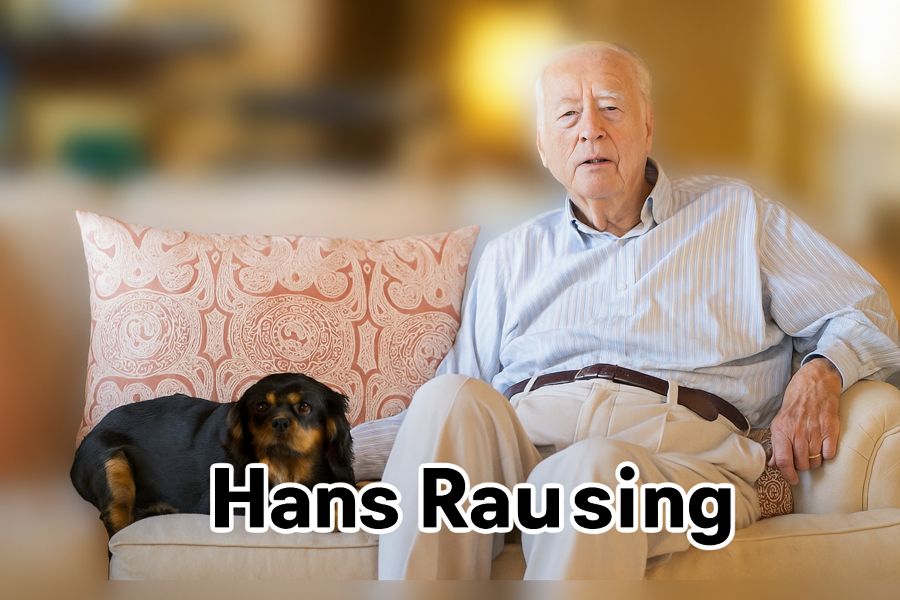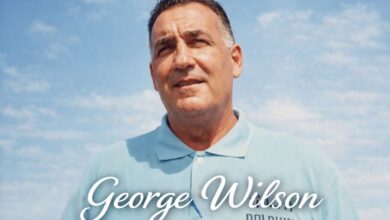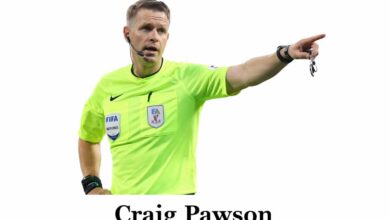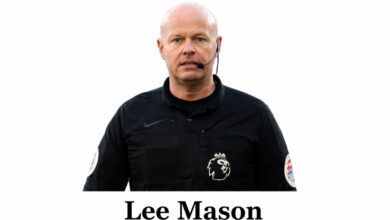Hans Rausing: The Visionary Swedish Industrialist Who Revolutionized Global Packaging
A Remarkable Journey of Innovation, Wealth, and Philanthropy That Changed the World

Table of Contents
ToggleIntroduction
Hans Anders Rausing was one of the most influential Swedish industrialists of the 20th century. Known globally for his visionary leadership of Tetra Pak, he transformed a small family business into a multi-billion-dollar global enterprise that revolutionized how the world stores and consumes liquid food. His life was a blend of innovation, immense wealth, philanthropy, and thoughtful discretion.
Born in Sweden in 1926, Rausing’s journey was marked by determination, education, and a commitment to excellence. As the son of inventor and entrepreneur Ruben Rausing, Hans inherited not just a business but a legacy of innovation. His ability to expand Tetra Pak beyond borders made him one of the richest and most respected figures in global business history.
Quick Bio
| Full Name | Hans Anders Rausing |
|---|---|
| Born | 25 March 1926 |
| Died | 30 August 2019 |
| Birthplace | Gothenburg, Sweden |
| Nationality | Swedish |
| Education | Lund University (Economics, Statistics, and Russian) |
| Profession | Industrialist, Business Leader, Philanthropist |
| Spouse | Märit Rausing |
| Children | Lisbet, Sigrid, Hans Kristian |
| Net Worth (2019) | Approximately US $12 billion |
| Notable For | Expanding Tetra Pak into a global packaging empire |
Early Life and Education
Hans Rausing was born on 25 March 1926 in Gothenburg, Sweden, into the Rausing family—one of the most prominent industrial families in Europe. His father, Ruben Rausing, was the founder of Tetra Pak, while his mother, Elisabeth Varenius Rausing, was known for her cultural and intellectual influence. From an early age, Hans was exposed to the world of innovation, technology, and entrepreneurship.
He studied at Lund University, one of Sweden’s oldest and most prestigious institutions, where he graduated in 1948 with a degree in Economics, Statistics, and Russian. This academic foundation gave him a strong analytical mindset and a global perspective—qualities that later helped him lead Tetra Pak to international success.
Beginning of a Legendary Career
After completing his education, Hans Rausing joined the family company, Tetra Pak, in the late 1940s. At that time, Tetra Pak was a small Swedish firm developing revolutionary packaging for milk and dairy products. Hans quickly proved his business acumen, focusing on innovation, efficiency, and global expansion.
In 1954, he was appointed Managing Director of Tetra Pak. Under his leadership, the company grew exponentially, introducing packaging systems that preserved liquid food without refrigeration—a technological breakthrough that reshaped the food and beverage industry forever.
Rise as a Swedish Industrialist
Hans Rausing was not just a businessman; he was a true Swedish industrialist who understood the power of global markets. During the 1950s and 1960s, he led Tetra Pak’s expansion into Europe, Asia, and eventually the Soviet Union. By 1959, he had negotiated the first export deal to the USSR, marking a significant milestone in Swedish business diplomacy.
His leadership style was visionary yet practical. He focused on sustainability, long before it became a global trend, by promoting packaging that reduced waste and extended food shelf life. His innovations directly impacted global food distribution and helped reduce hunger in developing nations.
Leadership and Business Expansion
Under Hans Rausing’s direction, Tetra Pak became one of the most successful packaging companies in history. In 1985, he became Chairman of the company, solidifying his role as a leading industrial strategist. He was instrumental in creating Tetra Laval Group, a corporate structure that united packaging, processing, and distribution under one umbrella.
In 1995, after decades of success, Hans sold his 50% stake in Tetra Pak to his brother Gad Rausing. This deal made him one of the wealthiest individuals in Sweden and the United Kingdom. By the time of his passing, his estimated net worth was around US $12 billion, reflecting a lifetime of business triumph.
Philanthropy and Humanitarian Work
Hans Rausing and his wife, Märit Rausing, became known for their extraordinary philanthropy. They donated vast sums to universities, hospitals, and cultural institutions in both Sweden and the UK. Their initiatives supported medical research, education, and environmental sustainability.
Among their most notable contributions is the Hans Rausing Endangered Languages Project at SOAS University of London, which helps preserve threatened languages worldwide. He also funded scholarships and research chairs at Lund University and King’s College London, ensuring that knowledge and education remained accessible to future generations.
Life in the United Kingdom
In the early 1980s, Hans Rausing moved to the United Kingdom and settled at Wadhurst Park, an estate in East Sussex. From there, he managed his investments and philanthropic work. He lived a private, modest life despite his wealth, preferring to focus on charity and family.
His relocation to the UK also reflected his strategic thinking as a businessman. While it brought attention to his tax residency, Hans remained respected for his integrity and contributions to both Swedish and British society.
Recognition and Honors
Hans Rausing received numerous honors for his contributions to business and society. In 2006, he was appointed an Honorary Knight Commander of the Order of the British Empire (KBE), recognizing his philanthropic impact in the UK.
He was also awarded honorary doctorates from several universities, including Lund University, for his services to industry and education. His awards reflect both his achievements as an entrepreneur and his generosity as a humanitarian.
Legacy and Global Impact
Hans Rausing’s legacy extends far beyond business. He transformed the way people package and consume food, paving the way for a more sustainable and efficient world. His leadership turned Tetra Pak into a global brand synonymous with innovation, hygiene, and quality.
As a Swedish industrialist, his influence continues to inspire business leaders worldwide. The Rausing family remains deeply involved in philanthropy, continuing Hans’s mission to improve lives through education, science, and humanitarian aid. His story is a testament to how vision, hard work, and compassion can shape the modern world.
Conclusion
Hans Anders Rausing was more than a billionaire; he was a symbol of innovation, discipline, and generosity. From a modest Swedish beginning to becoming one of the world’s most respected industrial figures, his journey exemplifies the power of purpose and vision.
He leaves behind a legacy that blends corporate success with social responsibility. His contributions to business, education, and global welfare make him an enduring figure in history—one whose ideas and influence continue to shape the world even after his passing.
FAQs
1. Who was Hans Rausing?
Hans Rausing was a Swedish industrialist best known for transforming Tetra Pak into the world’s largest food packaging company.
2. What was Hans Rausing’s net worth?
At the time of his death in 2019, his estimated net worth was approximately US $12 billion.
3. What was Tetra Pak’s contribution to the world?
Tetra Pak revolutionized food packaging by introducing aseptic cartons that preserved liquid foods without refrigeration.
4. Where was Hans Rausing educated?
He studied at Lund University, Sweden, earning a degree in Economics, Statistics, and Russian.
5. What is Hans Rausing remembered for today?
He is remembered as a pioneering Swedish industrialist, a global business leader, and a generous philanthropist who improved lives through innovation and charity.



